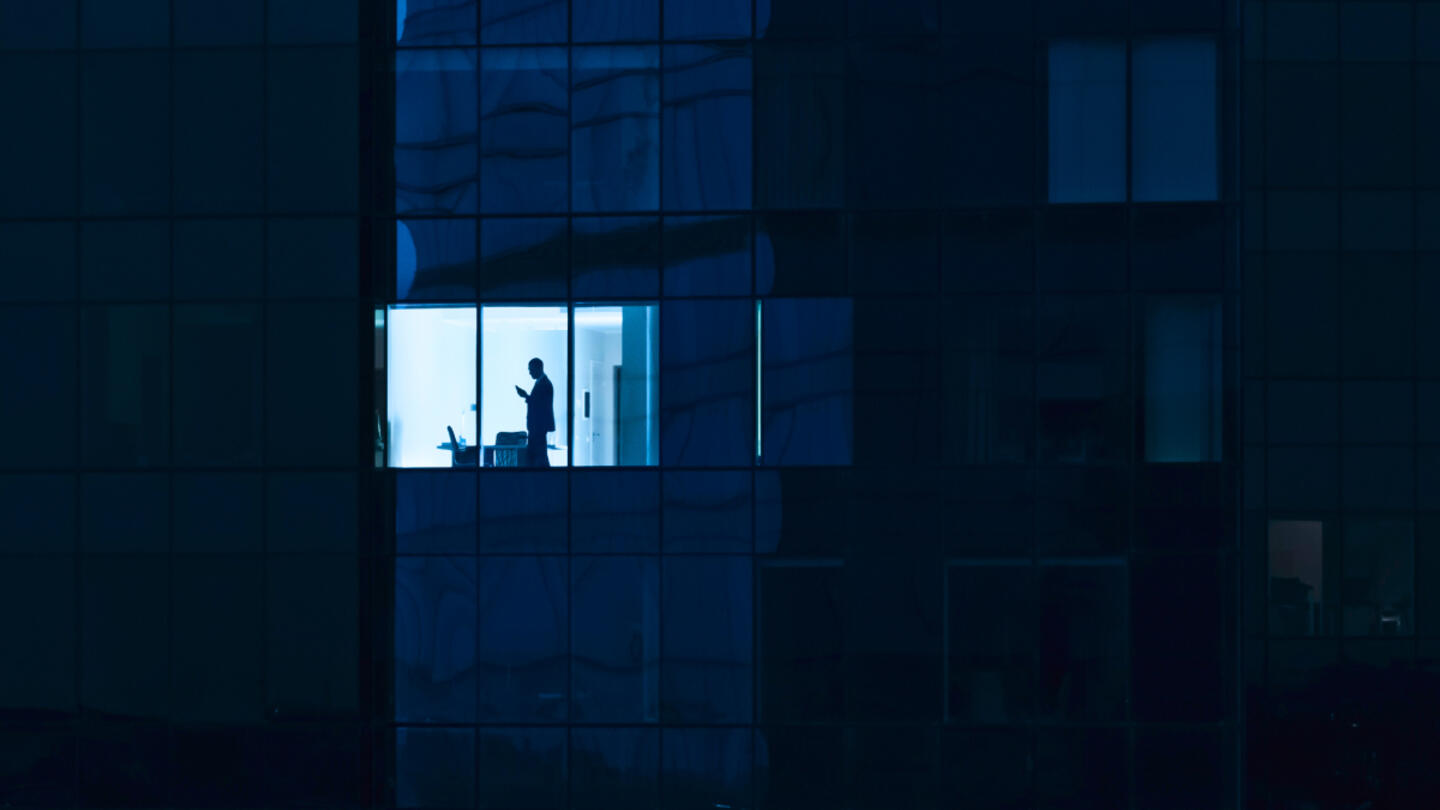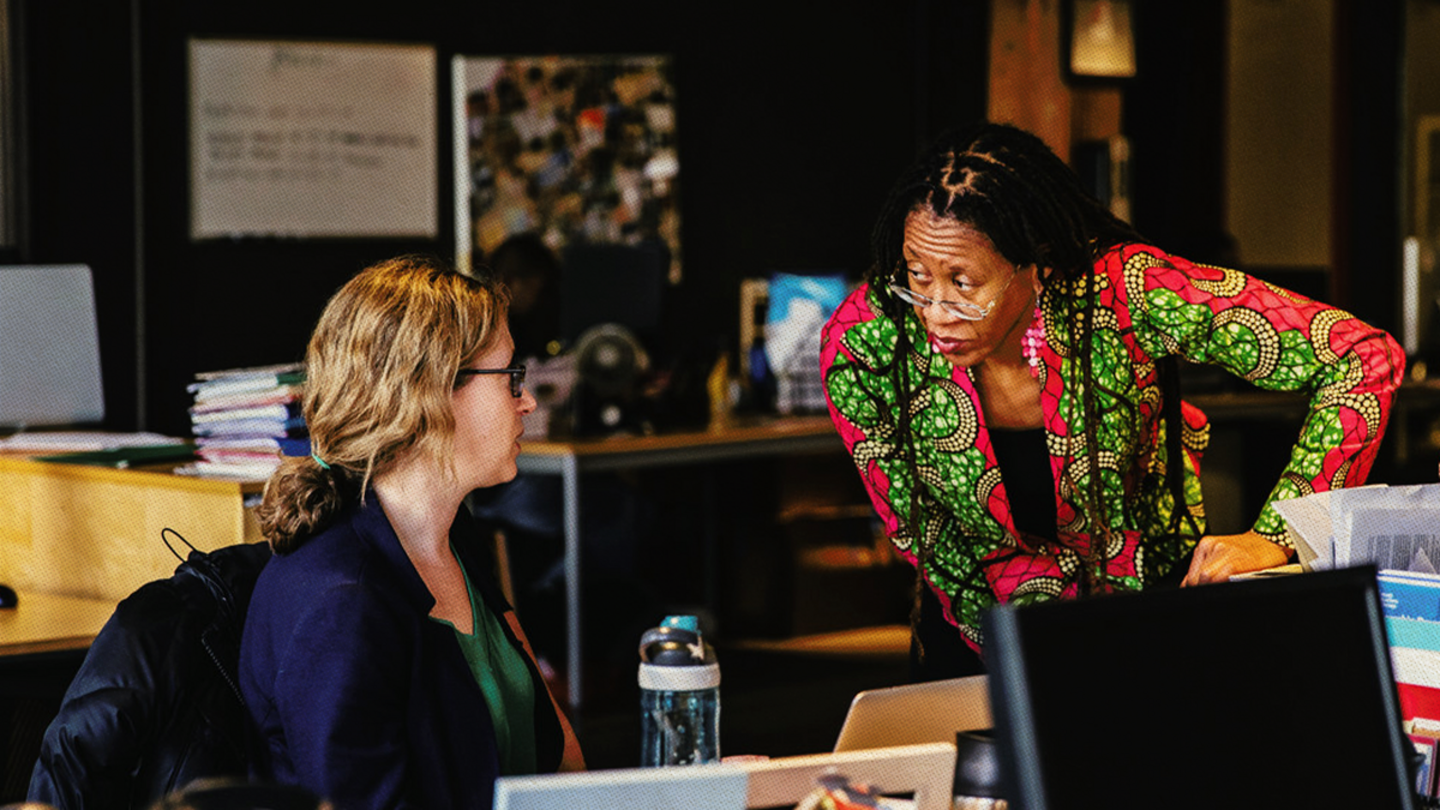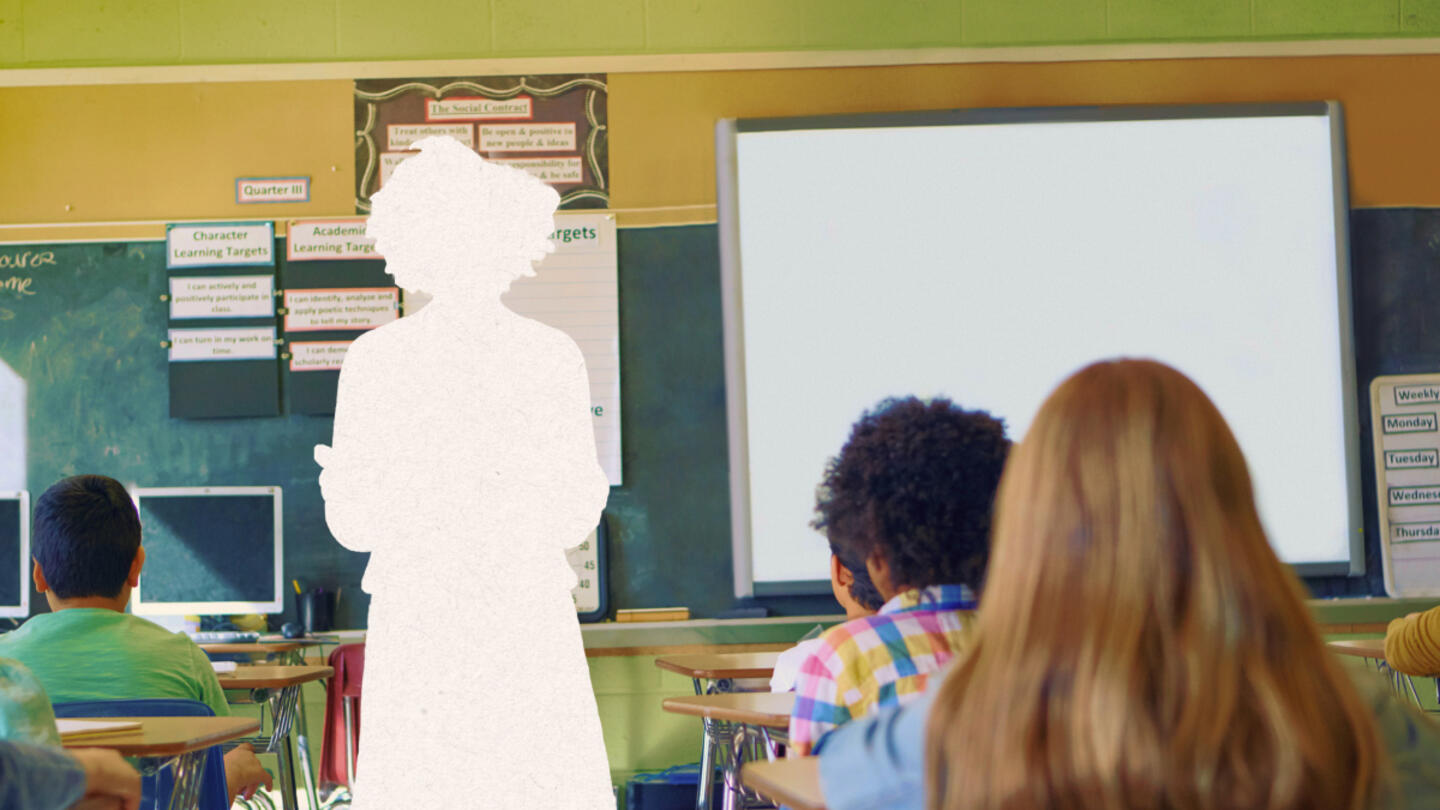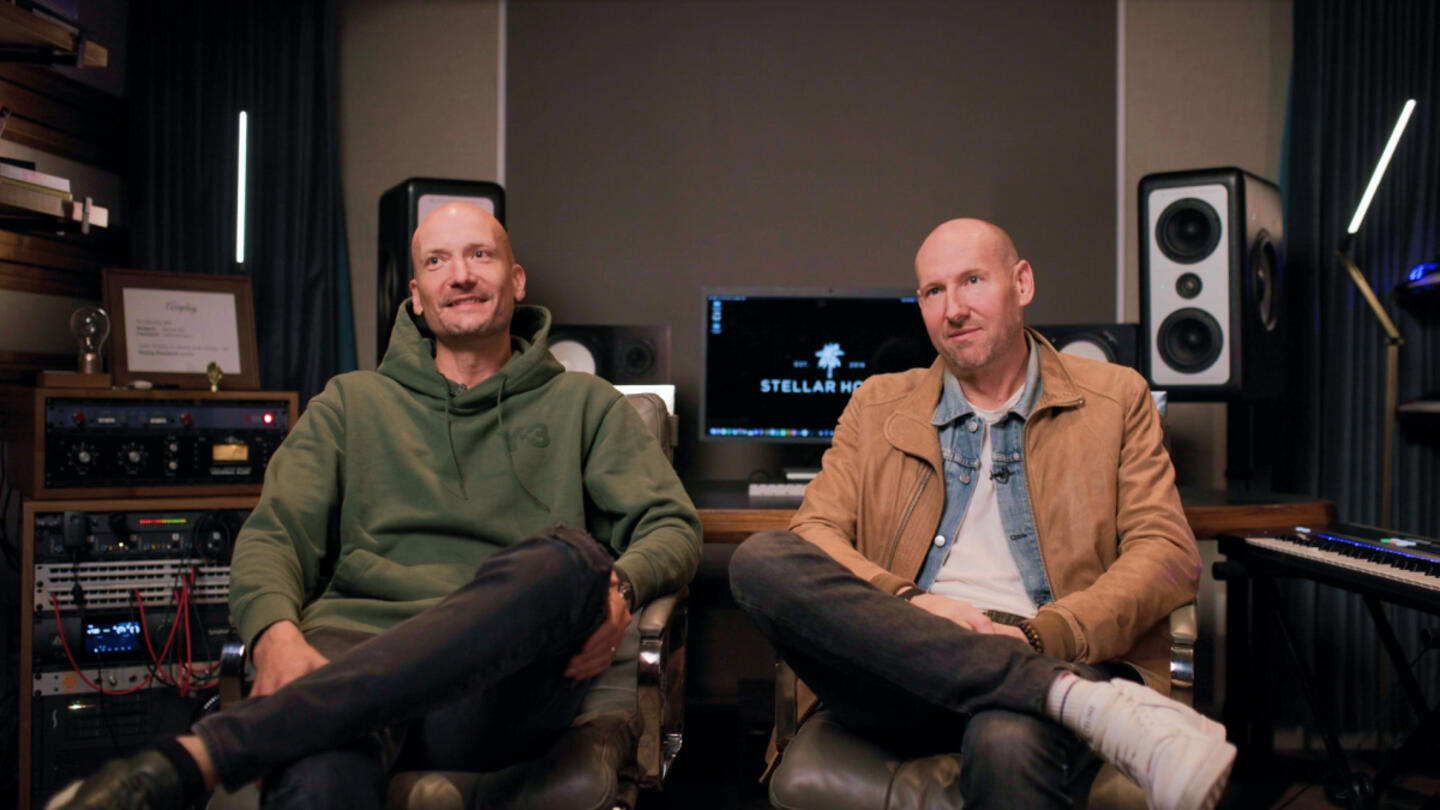Tor Hermansen and Mikkel Eriksen are the masterminds behind megahits like Katy Perry’s “Firework” and Beyoncé’s “Irreplaceable.” With 10 Grammys and several multiplatinum hits, the producers (a.k.a. Stargate) have shaped modern pop and created chart-topping hits with Rihanna, Sam Smith, Coldplay, and countless others. They’ve also mastered the art of developing talent.
We can learn a lot from them — lessons that go well beyond hip-hop and R&B.
Hermansen and Eriksen are cofounders of the Los Angeles Academy for Artists and Music Production, a program tailored specifically to nurture new singers, songwriters, and producers for the music industry. It’s a hands-on program where students spend the majority of their time in studios writing, recording, and producing music with one another, getting real feedback from industry experts along the way.
In creating LAAMP, Eriksen and Hermansen had no interest in following the status quo or adding another traditional music degree to the mix. Instead, they built the kind of program they wished had existed when they were starting their careers.
“What do you actually need to know in order to find your voice, improve your craft, and collaborate effectively?” said Eriksen.
Program highlights:
- The program lasts nine months.
- There are no teachers, no curricula, no tests, no grades, and no degrees.
- Students are treated as professional artists.
- There are 18 studios on site for students to write, record, and produce music every day.
- Students leave the program with over 50 songs to showcase their talent and a network of collaborators to continue creating with.
In just three years, 22 LAAMP students have signed deals with labels and publishers. Songs created by LAAMP students have racked up over 480 million streams on Spotify, while LAAMP artists such as Sophie Shaw and NERIAH have garnered over 400K monthly listeners. LAAMP alumni writers and producers have worked with global artists such as Roddy Ricch, Lady Gaga, and John Legend, with some alumni earning Grammy and Latin Grammy nominations.
With 75% of employers across the entire workforce struggling to find skilled talent, could this model spark the innovation other industries so desperately need?
Students are artists and innovators in their own right
Hermansen emphasized that the goal of LAAMP is to help each individual find their own voice — not to create a uniform sound or style. Students are treated as artists and innovators.
“We respect their talent,” said Hermansen. “That’s the starting point. We’re not trying to create a ‘Stargate school,’ so they do it the way we would have done it. We’re trying to find their voice.”
He compared the approach to how he and Eriksen collaborate with established artists, focusing on creating music that reflects each artist’s unique sound. Likewise, they encourage students to develop a sound and style that is authentically theirs. Instead of pushing them in a specific direction, they offer gentle guidance — asking questions like, “What did you think there?” or “Have you considered this?” — to help students explore their potential while staying true to their individuality.
The result is transformative for each student. They learn as much about themselves as they do about music.
“The students are all super talented when they come in,” Eriksen said, “but watching them perfect their craft, write better choruses, elevate their music, and find their voice — it’s just amazing.”
How could other industries apply this model of personalized growth? The importance of individual contributions isn’t limited to music. Everyone has a unique voice (even if they don’t sing), and each person brings their own talents — problem-solving, storytelling, teamwork — that set them apart.
What if more education programs treated students as artists and innovators with untapped potential waiting to be uncovered? Imagine a workforce where every employee recognizes the valuable skills and experience they can contribute.
Sign up for Stand Together's Rethinking Work & Learning newsletter to get the latest stories, ideas, and trends on the future of employment.
What happens when industry expectations set the standard?
The music industry doesn’t care if you went to college. All that matters is the music.
It’s a good thing, too. Imagine how many incredible musicians we would have missed out on — Taylor Swift, Billie Eilish, Rihanna, Ed Sheeran, Elton John, Prince, Bob Dylan, Jimi Hendrix, Elvis, The Beatles …
The list goes on, and we can celebrate these artists precisely because they weren’t excluded for lacking a four-year degree. Countless producers, songwriters, and industry professionals have also found success without one.
“Mikkel applied for music school and didn’t get in,” said Hermansen. “So he made his own.” The two producers talk about music as “a great equalizer,” but when academics become a gateway, talented people get left outside.
“Some people are fortunate,” said Eriksen. “They’re both good at creating music and at math and science, but a lot aren’t. A lot of people are wired differently, and they could be amazing creatives or musicians or artists, but some of those other programs, you have to be amazing academically in all subjects to even have a shot of getting in.”
LAAMP doesn’t require a degree for admission. Nor does it grant degrees or certificates. In music, those credentials hold no real-world value.
“No one will ask about that in the music industry,” said Eriksen. “It’s all about your talent and what you can contribute in the room.”
In music, talent and hard work matter more than a degree. What if other industries followed suit? How many talented and hardworking people are stuck on the sidelines simply because they don’t have a college degree?
A place where practice and experimentation rule
Many traditional education programs focus heavily on classroom instruction, grades, and academic performance. Rather than fostering unique development based on students’ strengths and interests, the system reinforces hierarchies of success. Practical experience is relegated to internships after years of study or delayed until students finally enter the workforce.
LAAMP is designed differently. In the music industry, progress comes from doing, not just talking. The best way to grow is through experimentation, which is why students start creating almost immediately.
Hermansen, Eriksen, and other industry mentors teach fundamental techniques and tools, but there are no rigid formulas. The goal is to equip students with the skills to consistently bring out their best, not just get lucky once. While the industry evolves, certain elements — emotion, performance, strong lyrics, great titles, repetition, and simplicity — remain timeless. But none of it matters unless students learn to apply that knowledge to their own music. The real learning happens through hands-on collaboration in the music studio.
“Instead of having an academic discussion of like, ‘I don’t think there should be a saxophone on this song,’ we’ll just try saxophone and, ‘Oh, that was terrible. Take the saxophone out,’” said Hermansen. “When you do that over and over and over again, you become really good at trying out different things.”
A typical week at LAAMP kicks off with playback sessions showcasing the songs students created the previous week. This is followed by workshops with industry-leading producers and songwriters, who offer valuable insights from their experiences in the music business. The rest of the week is spent collaborating in studios, where students work 12 hours a day for nine months. They are organized into rotating production teams based on their skills and interests, building community and creating music together.
“They do one or two songs every week,” said Eriksen. “They leave the program with up to 100 new songs. They’ve never worked this hard in their lives, and the material is amazing.”
“If you want a life in music, to take your music to the next level, being in the studio and making music is the biggest and most important part of it,” Hermansen said.
Students leave LAAMP with extensive hands-on experience and a strong portfolio of work. How could other industries adopt this immersive training approach to develop talent and fuel innovation? How would higher education look different if it focused more on real-world, practical experience?
The most valuable lesson? Collaboration leads to success — in any industry.
Collaboration is a cornerstone of success in the music industry.
“The community is one of the most powerful things about LAAMP,” said Eriksen. “It’s being part of that group. Then there’s the magic that they create together after the program ends, as well.”
Teamwork and collaboration are skills that apply to any career. “That experience of being put in a room with a new team and a new set of people every single week from different walks of life and completely different backgrounds,” Hermansen said. “What they’re learning is how to get to know someone, figure out what the other person has to offer, and then include that into their work and make it better.”
Grades and class rankings run the risk of stifling collaboration. At LAAMP, students know their craft is only improved by working together.
What if professional development in other industries embraced this same level of teamwork? How would it transform the workforce?
“They’re learning the art of collaboration,” said Hermansen. “You can use that in whatever field you choose. If you become a professional producer or songwriter, that’s great. But if you don’t want to do that, if you want to do something else, you learn how to work hard. You learn how to bring out the best in people. That you can use in any area.”
To learn more about LAAMP and how Hermansen and Eriksen crafted it to reflect the needs of the music industry, read their op-ed in the New York Post.
LAAMP is supported by Stand Together Music, Sports & Entertainment, which unites musicians and their teams with proven changemakers to co-create solutions, starting with criminal justice, addiction recovery, education, free speech and peace, and ending the war on drugs.
Learn more about Stand Together’s efforts to transform the future of work and explore ways you can partner with us.

Here’s how to bridge the disconnect between employers and employees.

Lessons learned from Colorado.

How to help the talent of today fill the jobs of tomorrow.

Apprenticeship degrees enable teachers to earn credentials without putting their lives on hold.
